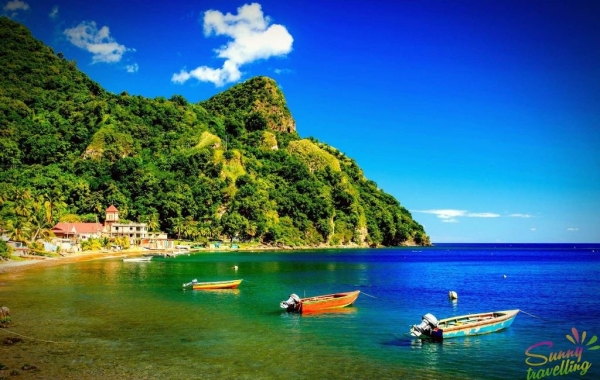
The agreement between Tajikistan and the Commonwealth of Dominica to lift visa requirements for holders of diplomatic, service, and regular passports has come into force as of July 17. This was announced by the Ministry of Foreign Affairs of Tajikistan.
Under the terms of the agreement, citizens of both countries can enter and stay in each other's territory for up to 90 days without a visa.
Dominica, officially the Commonwealth of Dominica, is an island country in the Caribbean. It is part of the Windward Islands chain in the Lesser Antilles archipelago in the Caribbean Sea. The capital, Roseau, is located on the western side of the island. Dominica's closest neighbors are two constituent territories of the European Union, both overseas departments of France: Guadeloupe to the northwest and Martinique to the south-southeast. Dominica comprises a land area of 750 square kilometers.
The agreement was signed in February this year in New York.
The Commonwealth of Dominica, located in the West Indies in the Lesser Antilles archipelago, is bordered by the Atlantic Ocean to the east and the Caribbean Sea to the west. Dominica is an island of approximately 750 square kilometers, known for its pristine nature and natural attractions, including the Morne Trois Pitons National Park, the Boiling Lake, the Emerald Pool, and Trafalgar Falls.
The island is also famous for its stunning beaches, such as Purple Turtle Bay with golden sand, Batibou Beach – a secluded spot with white sand, Mero Beach with black volcanic sand, and Pointe Baptiste Beach with its red cliffs. Dominica offers a variety of activities, including diving, snorkeling, and opportunities for whale and dolphin watching.
Dominica is a parliamentary democracy within the Commonwealth of Nations.
Agriculture, especially bananas, once dominated Dominica's economy, and nearly one-third of the labor force worked in agriculture in the early 2000s. The sector, however, is highly vulnerable to weather conditions and to external events affecting commodity prices. In 2007, Hurricane Dean caused significant damage to the agricultural sector as well as the country's infrastructure, especially roads. In response to reduced European Union (EU) trade preferences for bananas from the former European colonies after the 2009 WTO decision, the government has diversified the agricultural sector by promoting the production of coffee, patchouli, aloe vera, cut flowers, and exotic fruits such as mango, guava and papaya, while the economy has become increasingly dependent on tourism.




